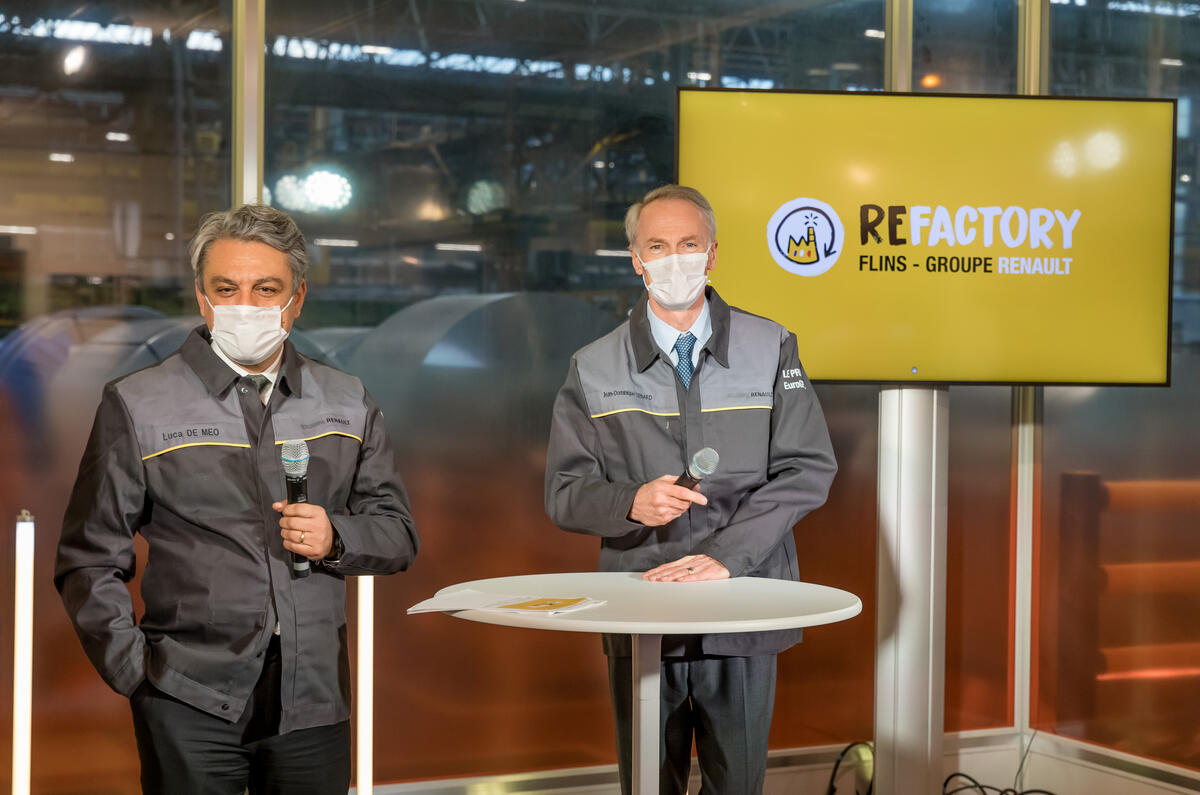Renault has defied union and government pressure by announcing that its factory in Flins, France, will be converted into “Europe’s leading circular economy factory dedicated to mobility”.
Workers at Flins and the nearby Choisy-le-Roi reconditioning facility will be retrained, with the aim of employing more than 3000 people at the new Flins site – which will be named the Re-Factory – by 2030.
Currently, the facility produces the Renault Zoe EV and Nissan Micra supermini.
Renault claims the renewal of the site will enable it to “benefit from a rapidly growing source of value while reaffirming its industrial footprint in France”.
However, French trade union CFDT continues to call for Renault to reconsider moving production of the Zoe to its plant in Douai, Northern France, while production of future EVs will be moved outside of the country. This includes the Dacia Spring electric city car, which is set to be imported from China.
“Renault cannot destroy production capacity in France while at the same time benefitting from state support,” the union said in a statement sent to Automotive News Europe. “We will not accept it.”
Flins, near Paris, has been established as a production facility since 1952, making 20 different models. It will now be involved in projects including establishing “second life” applications for EV batteries outside of the automotive sphere.
Between 2021 and 2024, Renault claims Flins will be gradually centred around four activities, dubbed “Re-trofit, Re-energy, Re-cycle and Re-start”. This will substantially increase the firm’s ability to retrofit and recondition used vehicles, with 3D printers on site also able to produce parts that are no longer in stock.
Alongside the battery solutions work, batteries will be recycled at the plant, while a dismantling line established by 2024 is claimed to be able to breakdown and recycle 10,000 vehicles a year.
Renault chairman Jean-Dominique Senard said regarding the decision: “We are facing up to reality…we all know that the status quo is no longer possible. We need to reinvent Flins.”
The decision follows Renault announcing 4600 job cuts in France this year as part of a wide-ranging cost-saving plan, instigated due to a record first-half loss of €7.3 billion (£6.51bn).




Join the debate
Add your comment
The curse of Brexit strikes again.
Well, well, well; we have here a "new business".
The clue is there: Re-cycle - grab valuable batteries from EVs/PHEVs so materials and used vehicles themselfs are early-kept-out from the roads, leaving the door open for New Cars.
Re-start - scrap end-of-lease/PCP cars into the dismantling line, so good parts can be feeded to remanufacture (saving production costs), curb competition from parts brokers and dry the used car market, leaving the door open for New Cars.
It's business folks, good business!
Not really a new business, both nissan and tesla already do this. If anything renault are behind having introtroduced the zoe quite a few years ago
Fat load of good France being in the EU has done for Renault then. If production was to move from Britain to elsewhere, the remoaners would be crying Brexit!
There is one elephant in the room and that's the powerful French unions. Of course that's no comfort to both remoaners and Brexiteers because it was them bloody unions who ruined the car industry. Or so the story goes.
Well at least the French and us Brits do have one thing in common, the problem, if you can call it a problem, is down to decisions taken by the board of directors, and nobody else.